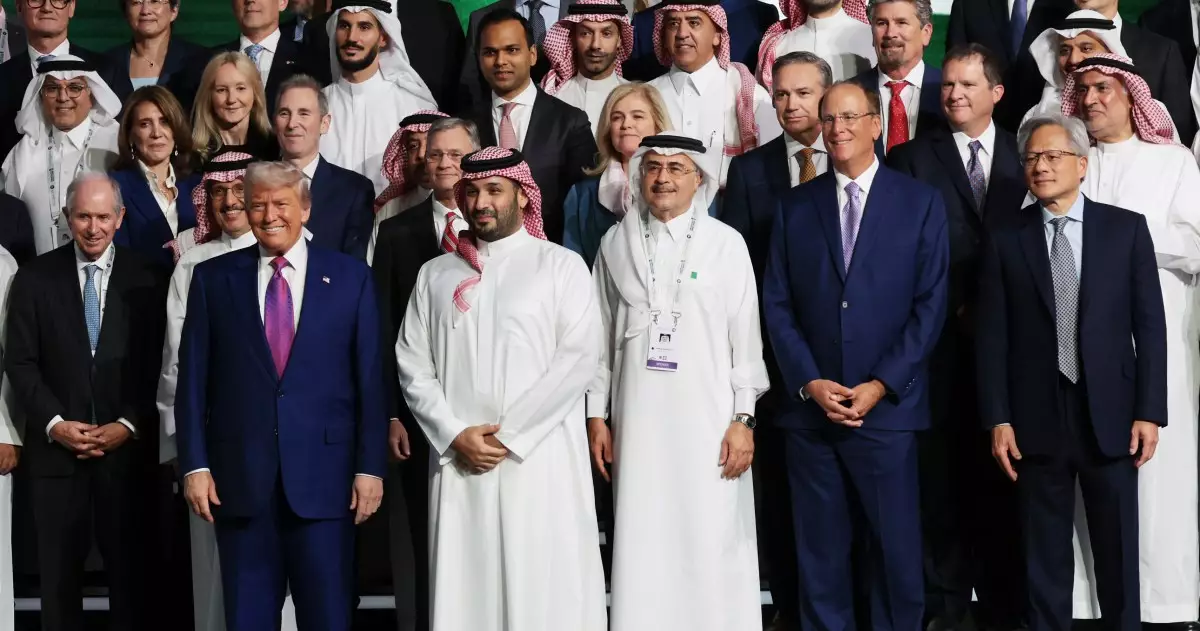In a landscape where technology and politics are inextricably intertwined, Nvidia’s recent actions underscore the dynamic interplay between corporate strategy and governmental policy. The tech giant has demonstrated an unparalleled ability to navigate these waters, reinforcing its foothold in the artificial intelligence (AI) chip sector. The crux of the matter lies in Nvidia’s strategic alignment with political narratives, most notably during the Trump administration, which has recently proven beneficial for the company. By aligning itself closely with the former president’s agenda, Nvidia has not only managed to stave off potentially crippling regulatory changes but also position itself favorably against foreign competitors.
US Export Regulations: A Double-Edged Sword
The recent lifting of export limitations on AI chips has profound implications for Nvidia. The decision by the U.S. Department of Commerce (DOC) to rescind the Artificial Intelligence Diffusion Rule is particularly noteworthy. This controversial regulation, originally introduced under President Biden, sought to curtail the international distribution of U.S.-made AI chips. By eliminating it, the U.S. government has signaled a clear intent to prioritize domestic technological dominance, boosting Nvidia’s controlling share of approximately 90% in the AI chip market. Removing such constraints is, on one hand, a win for American innovation and economic strength, but on the other, it complicates international technological relations — particularly with nations like China and Russia, which are already under strict scrutiny.
Nvidia and Huawei: The Competition Heats Up
The ramifications of U.S. regulations extend beyond mere market share and revenue; they also establish barriers in the global tech landscape. With the DOC’s stern warning against using Huawei’s Ascend AI chipset globally, it’s apparent that the U.S. views Huawei as a significant threat. Functioning as China’s leading answer to Nvidia’s advanced AI solutions, Huawei’s developments represent a direct challenge to American technological preeminence. Nvidia’s proactive approach in countering Huawei’s rise illuminates just how competitive the AI chip market has become. By rallying support from the U.S. government, Nvidia not only secures its dominance but also effectively sidelines potential threats from foreign innovations.
Nvidia’s Boardroom Diplomacy
In the backdrop of these policy shifts, Nvidia’s CEO Jensen Huang’s recent appearances with Donald Trump at significant events underscore the importance of politics in corporate strategy. Huang’s participation in a U.S.-Saudi investment summit highlights an effort to ensure favorable treatment from government leaders while soliciting investment that could potentially fuel further innovations. This collaboration between tech executives and political leaders represents a seamless blend of interest and influence. Moving forward, it will be critical for companies like Nvidia to maintain these relationships to navigate the complexities of both domestic politics and global competition.
Implications for Global Relations
While the favorable policy changes may bolster Nvidia’s market position, they also raise questions about the broader implications for international relations. The DOC’s justification for eliminating the AI Diffusion Rule — that it could have weakened U.S. diplomatic relationships and undermined innovation — posits a tension between economic ambitions and international diplomacy. As countries like China accelerate their technological endeavors, the U.S. risks fostering an environment of isolation that could backfire, leading to retaliatory measures or a tech cold war. The strategic recalibration by the U.S. government not only prioritizes profit but also asserts a dominance that could further segregate the global marketplace.
A Balancing Act for Future Growth
For Nvidia, the path ahead will require a careful balancing act. While the removal of regulatory barriers presents lucrative opportunities, it also necessitates an acute awareness of the shifting geopolitical terrain. The company’s ongoing engagement with the U.S. government and its response to emerging foreign competitors will be critical for sustaining its leadership in AI technology. As advancements in AI continue to unfold, Nvidia’s success will hinge on its ability to adapt to both market demands and the complexities of global relations, steering carefully through a tempestuous environment marked by both opportunity and threat.


Leave a Reply